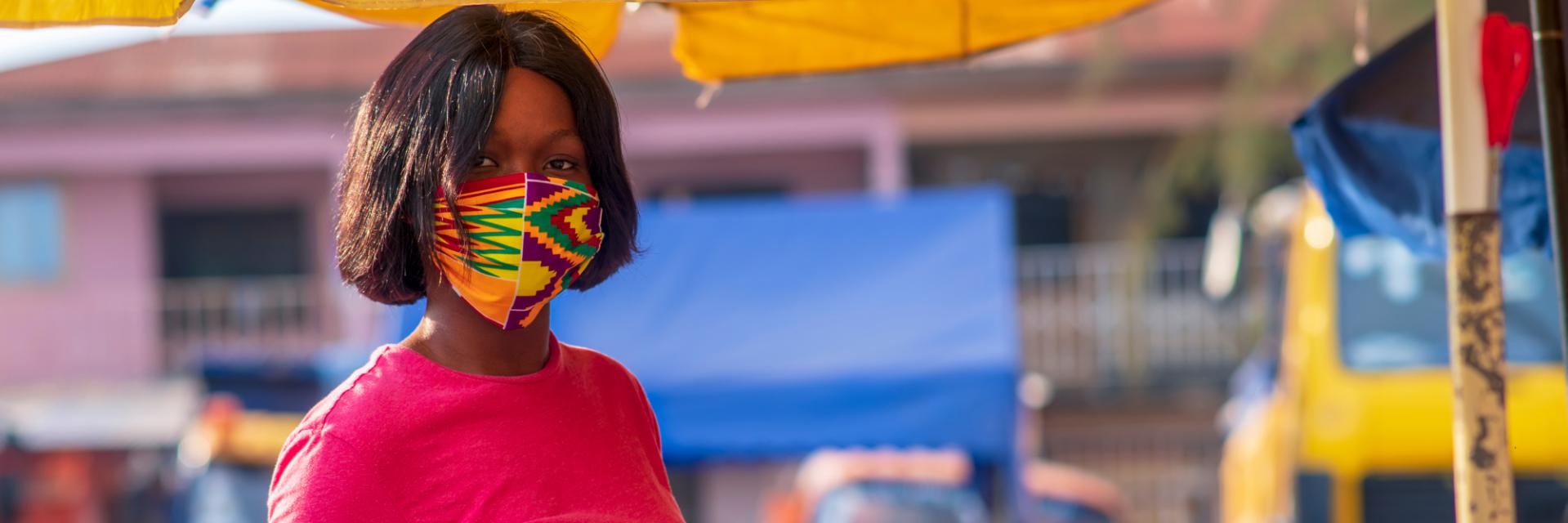Addis Ababa, Ethiopia, May 13, 2020 (ECA) - UN Women and the African Union, in partnership with the Economic Commission for Africa (ECA), on Tuesday hosted the inaugural meeting of African Ministers for Gender and Women’s Affairs to discuss the ongoing coronavirus pandemic (COVID-19) with a special focus on how to mitigate the impacts of the crisis on women and girls.
Held under the theme “COVID-19 Response and Recovery” - a gendered framework”, the meeting discussed key lessons learned and good practices in gender-responsive crisis management and mitigation.
The ministers sought to address challenges facing women and girls in Africa due to the pandemic while informing response and recovery planning and financing for better addressing the differentiated impact of the pandemic on women and girls in the continent.
In her remarks to the meeting, UN Under-Secretary-General and Executive Secretary of the ECA, Ms. Vera Songwe, said as the continent begins to talk of exiting lockdowns that were imposed to curtail the spread of the virus, there was need to ensure that women and girls were protected.
“Young girls are also out of school and become commodities for their families. We should also worry about early pregnancies among our girls,” she said, adding women were at the forefront of the COVID-19 crisis and should be hailed for their role.
“Seventy percent of nurses in Africa are women, we must praise, protect and empower them,” the UN Under-Secretary General said.
She also spoke about the importance of technology in empowering women on the continent.
“We talk about technology but only 27% of our women in Africa have access to internet and only 15% of them actually afford the cost to use the internet. This also means our young girls are mostly left out of online learning. We need to be able to respond to that,” said Ms. Songwe, adding having no access to technology and connectivity meant many women were losing their jobs.
For her part, UN Women’s Executive Director Phumzile Mlambo-Ngcuka, who co-chaired the meeting with Beatrice Lomeya Atilite, Chairperson of the African Union Specialized Technical Committee on Gender Equality and Women’s Empowerment, said;
“This pandemic is hitting hard sectors where majority of women are employed and we know most women do not have savings therefore government and stakeholders should be keen on social protection and food security among other key issues in the gender responses of COVID-19.”
Women, she said, are a significant stakeholder in the fight against COVID-19 “but they are not necessarily in the leadership of responses and we know from Ebola experiences, when you exclude women, then you are likely to face a catastrophe”.
AUC Chairperson, Moussa Faki said COVID-19 accentuates the inequalities and discrimination of vulnerable groups.
“The confinement and the social distancing, can transform the haven of peace, which must be the home, into a place at high risk of violation of human rights and particularly the rights of women. We must, therefore, together ensure that this situation does not become the breeding ground for the propensity of violence against women. The fight against impunity, respect for dignity, equality and solidarity must be the cardinal values in the gender approach against COVID-19,” he said.
AU Special Envoy on Women Peace and Security, Ms. Bineta Diop, said responses to COVID-19 in Africa must be gender responsive. This is the time for action, she told the meeting.
“Many member States and the women ministries are at the forefront when it comes to responses to COVID-19. We shall overcome this pandemic but we need to make sure the work women are doing is not invisible. Let us leverage on opportunities for sustainable solutions,” she said.
For his part, Africa CDC Director, John Nkengasong, encouraged partnerships for the AU to ensure milestones are made in the initiative on Partnership to Accelerate COVID-19 Testing (PACT) which is meant to trace, test and track as the continent continues to fight the pandemic.
“This is a great component to save lives and livelihoods,” he said.
The ministers evaluated their efforts in implementing the AU guidelines on gender-responsive responses to COVID-19, discussed what was and was not working; remaining gaps; emerging threats and how to enhance action.
They were concerned that limited disaggregated data shows significantly more men than women infected by COVID-19 and that the crisis could worsen existing gender disparities.
As at May 13, 2020, 53 African countries were reporting 69,578 COVID-19 cases, 2,403 deaths, and 23,978 recoveries.
Issued by:
Communications Section
Economic Commission for Africa
PO Box 3001
Addis Ababa
Ethiopia
Tel: +251 11 551 5826
E-mail: eca-info@un.org

